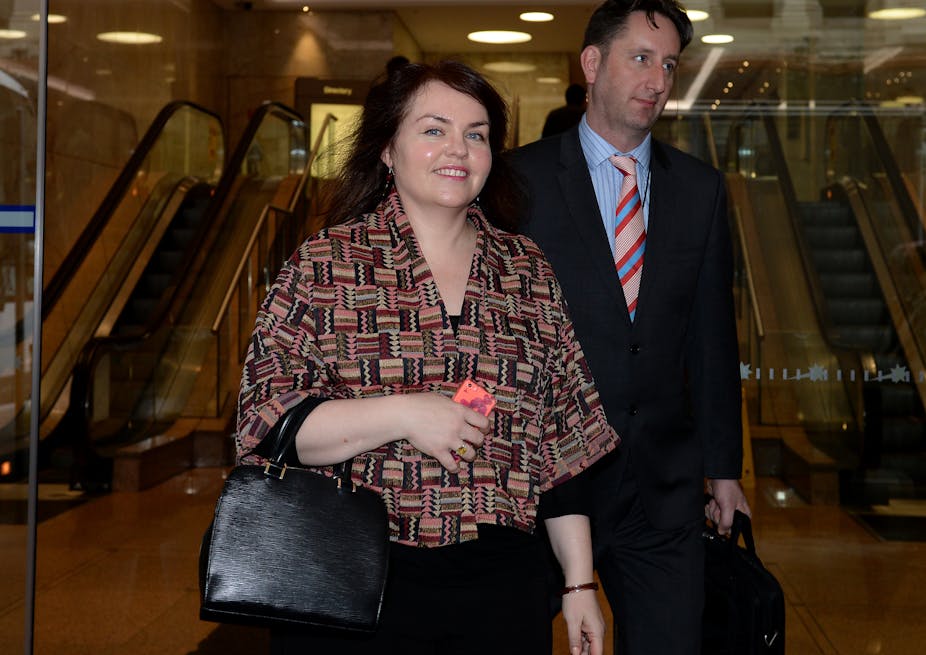The government is targeting Kimberley Kitching, Labor’s controversial Senate replacement for Stephen Conroy, over her union past ahead of this week’s House of Representatives debate on legislation to toughen union governance.
Last week Kitching was preselected amid deep fighting within the Victorian right faction. She and her husband Andrew Landeryou, who previously ran a blog that traduced factional and other enemies, are close friends of Opposition Leader Bill Shorten.
Labor sources said Shorten let his preference for Kitching be known, while factional heavyweights Richard Marles and David Feeney were opposed.
Cabinet Secretary Arthur Sinodinos on Sunday highlighted that Kitching, a former official of the Health Services Union, was “someone who was referred by the Heydon royal commission for further investigation”.
The commission recommended she be prosecuted for undertaking tests on behalf of other officials to obtain right-of-entry permits.
Sinodinos said Shorten “should think further about the candidacy of Kitching”.
She was “clearly close to Mr Shorten and one of the reasons I think Mr Shorten is supporting her candidacy for the Senate is because she would be a vote for him in the partyroom.
"This is a very important matter,” Sinodinos told a news conference. “It’s very important that we understand that Mr Shorten knows that the longer … the Coalition stays in power, the more tenuous his position is, and I think it’s another indication that he wants a further vote in the partyroom to buttress him against the claims of Mr Albanese.”
The registered organisations bill sets up a new regulator, the Registered Organisations Commission, to assume responsibility from the Fair Work Commission for overseeing unions and employer groups. It would also more closely align the responsibilities on these bodies to those applying to corporations. Disclosure requirements and penalties would increase.
This legislation and that to restore the Australian Building and Construction Commission were the triggers for the double dissolution. After its success last week with legislation relating to the Victorian firefighters, the government is hopeful of getting these bills through the Senate. If it can’t, it would have the option of taking them to a joint sitting.
A Labor source responded to Sinodinos’ comments by saying “Arthur Sinodinos should be the last one throwing mud around, given his problems in the past” – a reference to Sinodinos appearing before the Independent Commission Against Corruption as a witness.
Labor’s spokesman for employment and workplace relations Brendan O’Connor said Labor was not opposed in principle to changes in relation to oversight of registered organisations but had announced its own set of proposals. One of the major ones was that the regulatory authority should be the Australian Securities and Investments Commission rather than the new body the government proposed which would be subject to political interference.

